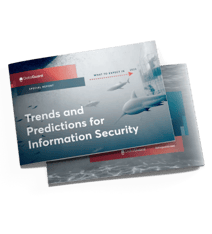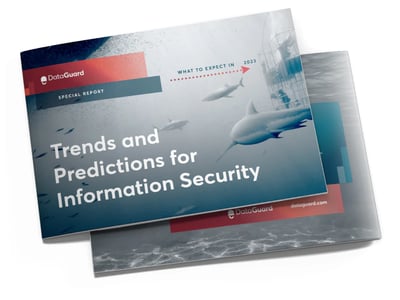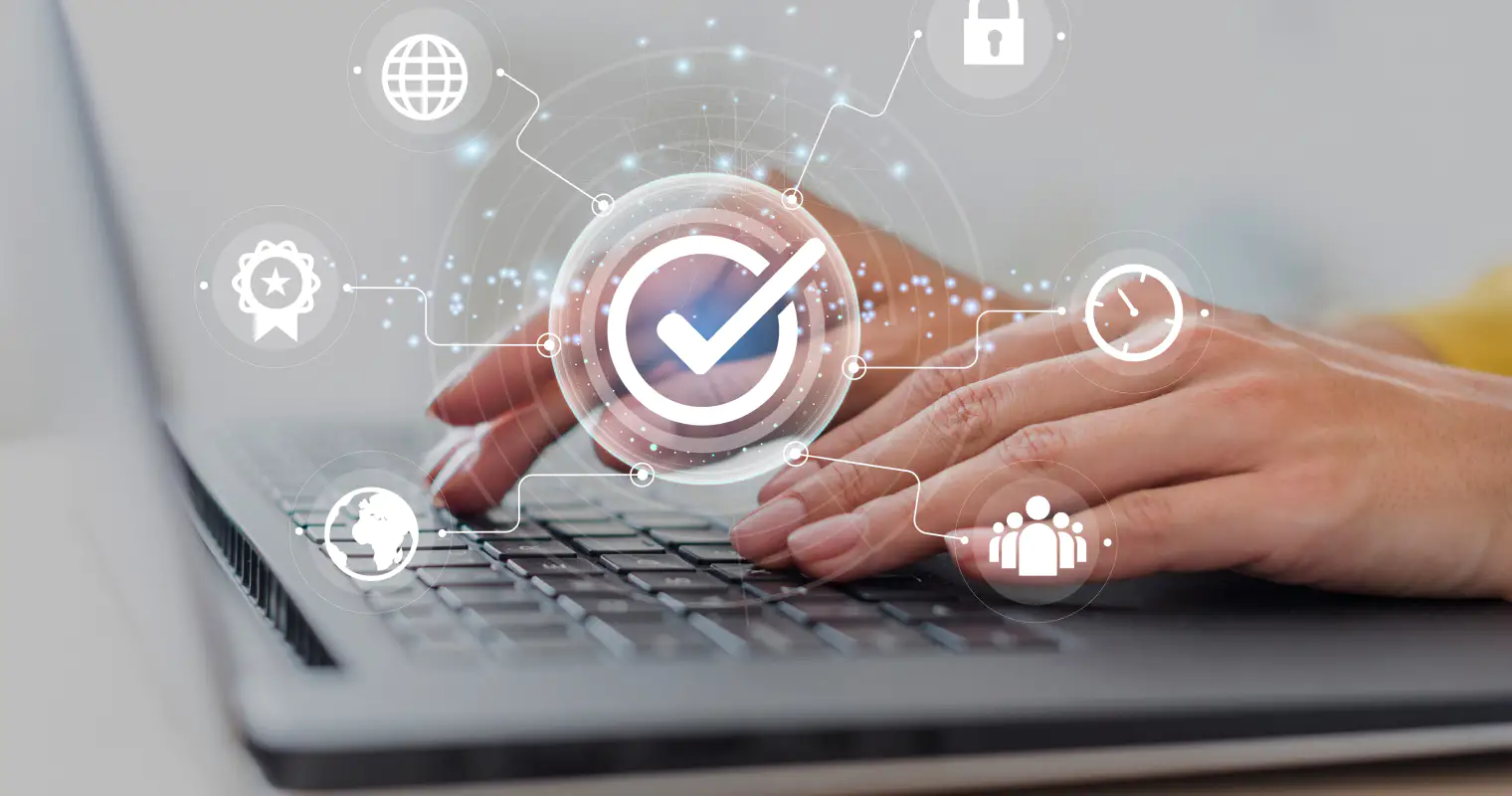ISO/IEC 27001 is widely regarded as the best-known standard for information security management systems (ISMS). This system that allows you to manage, monitor, review and improve your information security practices.
That said, you might want to consider other security standards that suits better your security requirements. Over the years, many frameworks have been introduced to handle different challenges companies may face, but choosing the best framework that best fits your company’s security needs is up to you.
In this article, we’ll look at an overview of ISO 27001 and compare it with other information security frameworks, highlighting their benefits and differences. We’ll discuss what frameworks work best for different industries.
In this article
- What is ISO 27001 and why is it important?
-
Where does ISO 27001 fit into international laws on information security?
- Conclusion
The facts in a nutshell
- ISO 27001 is a guide that covers all aspects of information security, and allows companies to comply with data protection laws by providing a framework to implement an ISMS.
- ISO 27001 is the main standard developed by The International Organisation for Standardisation but can be combined with other standards like ISO 27002 for better information security.
- Unlike many other standards, ISO 27001 is not industry-specific and therefore can be used by any company. The same applies to the NIST framework.
- By complying with industry standards for information security, you can form a cybersecurity-aware culture within your company to reduce the risk of data breaches, human error and reputational damage.
- ISO 27001 and other information security standards can also help you comply with many international regulations like the UK GDPR and EU GDPR.
Before diving into the various types of frameworks available, let’s take a look at ISO 27001, what it is and why it’s important.
What is ISO 27001 and why is it important?
Published in 2005, the ISO 27001 standard is regularly updated to reflect evolving threats, recent technologies, and best practices. It is a systematic approach to managing sensitive company information, including financial data, intellectual property, and personal data.
ISO 27001 is essential because it provides a globally recognised benchmark for information security management, which can help your company demonstrate its commitment to protecting sensitive data. It also provides benefits like:
- Improved structure and focus
Figure out what kind of security measures your company should have in place. Doing so lets you focus on making your company better, not just more secure. It also helps to improve structure and focus to get back to creating value for your customers.
- Reduced human error
Reduce the damage that can be caused by people making mistakes or taking the wrong actions. The goal is to prevent harm from occurring, which means that you should not just focus on avoiding fraud. You should also focus on preventing damage as well. - Enhanced regulatory compliance
Meet compliance obligations with ISO 27001 certification and risk assessments. As part of the assessment, your company’s current procedures will examined to see if there are any gaps in its ability to meet regulatory standards. After the assessment is done, the company can find out how well it meets the standard and look for areas where it needs to improve.
Read more on how ISO 27001 can benefit your company.
ISO 27001 does more than improve information security. It can also help you maintain compliance with international information security laws.
Where does ISO 27001 fit into international laws on information security?
ISO 27001 is not a legal requirement in international law, but it is a widely accepted standard for good information security practices. Companies can use the standard as a guideline to comply with the following regulations:
1. The General Data Protection Regulation (The EU GDPR)
The GDPR is a data protection regulation that came into effect in May 2018. It applies to all companies that process the personal data of European Union citizens, regardless of the company's location.
The regulation has strict requirements for data controllers and processors, including those for:
- Data protection by design and default,
- Data breach notifications, and
- Data subjects' rights to access, rectify, and erasure their personal data.
2. The UK GDPR (Formerly: The Data Protection Act)
The UK GDPR—adopted from the EU GDPR—is the UK's main data protection legislation, and it sets out the rules for processing personal data in the UK. It applies to all companies that process personal data, regardless of size or sector.
The regulation sets out several principles for the processing of personal data, including the following:
- Personal data must be processed fairly and lawfully.
- Personal data must be collected for specified and legitimate purposes.
- Personal data must be kept accurate and up-to-date.
The regulation provides people with the right to access their personal data and request its correction or erasure if it is inaccurate.
ISO 27001 can be used as a tool to help companies meet the requirements of the EU GDPR and the UK GDPR. It does this mainly by implementing an Information Security Management System (ISMS), which allows companies to prove that they follow the laws and rules on data protection.
How does ISO 27001 differ from other frameworks?
Your company can use many security frameworks to help manage its information security risk. Some of these frameworks are developed by government agencies, while others are developed by industry groups.
Certain frameworks focus on specific areas of data security, like physical security or access control, while others provide a comprehensive approach to managing all aspects of information security. Here is a brief overview of some popular data security frameworks, along with how they differ from ISO 27001:
1. NIST vs. ISO 27001
The National Institute of Standards and Technology (NIST) is a non-regulatory agency of the United States Department of Commerce. NIST has developed a widely used cybersecurity framework that provides guidelines for managing and reducing cybersecurity risk. The NIST framework is organised around five core functions:
- Identify,
- Protect,
- Detect,
- Respond, and
- Recover.
The NIST is a framework that can also be adapted to different industries and companies.
Comparison to ISO 27001: The NIST framework is more prescriptive and provides more detailed guidance on specific security controls. ISO 27001 provides a more structured approach to information security management, focusing on risk management.
2. ISO 27002 vs. ISO 27001 ISO
ISO 27002 is a code of practice for information security management. It provides guidelines and general principles for initiating, implementing, maintaining, and improving information security management in a company. ISO 27002 is often used in parallel with ISO 27001.
SOC 2 reports are often requested by companies that use service providers to store or process data.
Comparison SOC 2 to ISO 27001: SOC 2 focuses specifically on service providers and their controls, whereas any company can use ISO 27001. ISO 27001 also provides a more comprehensive framework for information security management.
- Access control,
- Cryptography,
- Network security,
- Physical security, and
- Business continuity.
3. SOC 2 vs. ISO 27001
Systems and Organisation Controls (SOC) 2 is an auditing process that ensures service providers securely manage data to protect customers’ interests. The SOC 2 report provides detailed information and assurance about the service provider’s controls over:
- Security,
- Availability,
- Processing integrity,
- Confidentiality, and
- Privacy.
SOC 2 reports are often requested by companies that use service providers to store or process data.
Comparison SOC 2 to ISO 27001: SOC 2 focuses specifically on service providers and their controls, whereas any company can use ISO 27001. ISO 27001 also provides a more comprehensive framework for information security management.
4. PCI DSS vs. ISO 27001
The Payment Card Industry Data Security Standard (PCI DSS) is a set of information security guidelines developed to ensure that organizations handling credit card data provide a secure environment for processing, transmitting, and storing cardholder information. Established by major credit card companies such as Visa, MasterCard, American Express, Discover, and JCB, the PCI DSS aims to protect sensitive cardholder data and minimize the risk of data breaches.
Comparison to ISO 27001: PCI DSS focuses specifically on the protection of credit card data and is mandated by major credit card companies, ISO 27001 provides a broader, voluntary approach for managing information security risks across all types of data within an organization.
Compliance with PCI DSS is mandatory for entities handling cardholder data, while ISO 27001 certification is optional but demonstrates a commitment to maintaining a robust information security management system (ISMS) throughout the organization.
5. TISAX ® vs. ISO 27001
Trusted Information Security Assessment Exchange (TISAX ®) is a framework for assessing the information security of automotive suppliers. TISAX ® was developed by the German Association of the Automotive Industry (VDA) and is widely used in the automotive industry.
Comparison to ISO 27001: TISAX ® is based on the ISO 27001 standard but includes additional requirements specific to the automotive industry. This includes requirements for physical security and protection of intellectual property. TISAX ® is designed to provide a consistent and standardised approach to information security assessment and management within the automotive supply chain.
6. Cyber Essentials Basic vs. ISO 27001
Cyber Essentials is a UK government-backed scheme that helps companies protect against common online threats. It provides guidelines for basic security measures that companies should implement to protect from cyber-attacks.
Comparison to ISO 27001: Cyber Essentials provides a more fundamental approach to cybersecurity and is focused on protecting companies from common threats. The main difference between ISO 27001 and Cyber Essentials is the level of certification. ISO 27001 certification is carried out by third-party certification bodies, which audit a company’s ISMS against the requirements of the standard. Cyber Essentials certification, on the other hand, is self-assessed, with companies completing a questionnaire and undergoing an external vulnerability scan.
While companies do self-assess their cybersecurity measures when completing a Cyber Essentials (CE) assessment, there is still a certification process that involves a certified auditor reviewing the assessment against the standard. If a company fails to meet the requirements, they can fail the certification process.
Each framework focuses on a different aspect of information security, which means you must choose which one works best for your company. Let’s look at how you can make this decision by identifying the best frameworks for each industry.
What frameworks are essential for different industries?
Generally, ISO 27001 is considered essential to any industry as it covers a broad range of information security controls. There are also a few other frameworks that are relevant for the following industries:
1. Essential frameworks for the Financial Industry
The financial industry is heavily regulated and often targeted by cyber attackers, making information security a critical concern. Here are some essential information security frameworks to ensure that sensitive customer and business information is protected:
- ISO 27001
- NIST
- PCI DSS
- SWIFT CSP
2. Essential frameworks for the healthcare industry
The healthcare industry manages sensitive patient information, including medical history, personal data, and financial information.
The industry is also subject to strict regulatory requirements, specifically regarding the protection of patient data. The healthcare industry is also a prime target for cyber attackers because of the value of the data it manages. Here are some frameworks that healthcare companies should consider:
- HIPPA
- HITRUST CSF
- NIST
- ISO 27001
3. Essential frameworks for the manufacturing industry
The manufacturing industry is increasing its reliance on digital technologies and connected systems, which makes it more vulnerable to cyber threats. Manufacturing companies need to adopt robust cybersecurity measures to protect intellectual property, trade secrets, and sensitive data.
Here are a few information security frameworks that are essential for the manufacturing industry:
- NIST
- ISO 27001
- IEC 62443
- CIS Controls
4. Essential frameworks for the retail and e-commerce industries
The retail and e-commerce industry manages a large volume of sensitive customer data, including personal information, credit card details, and transactional data. To protect sensitive data, minimise the risk of data breaches, and comply with regulatory requirements, retail and e-commerce companies should consider the following frameworks:
- ISO 27001
- NIST
- PCI DSS
5. Essential frameworks for the energy and utility industries
The energy and utilities industry manages critical infrastructure, including power grids, oil and gas pipelines, and water treatment facilities.
So, this industry is a prime target for cyber attackers who seek to disrupt operations or steal sensitive information. Companies in this industry should consider the following frameworks:
- ISO 27001
- NIST
- NERC CIP
- IEC 62443
Integrating these frameworks into your company is the first step to securing your information assets. After that, you should consider creating a strong security culture within your company.
What are the key components of information security?
While information security frameworks and tools play a vital role in protecting your company’s sensitive data, people remain vulnerable, and human error must be addressed. This is where training and awareness come in. Look at it in three steps:
1. Understand the role of employee training in information security
Human error has always been considered one of the top threats to information security. Employee negligence, carelessness, or lack of awareness can lead to serious consequences like data breaches, malware infections, and phishing attacks. This is why employee training and awareness are essential to any effective information security program.
Employees can gain the knowledge, skills, and awareness needed to identify and mitigate cybersecurity threats through training. Training should cover a range of topics, including:
- Basic security practices such as password hygiene,
- Phishing awareness,
- Safe web browsing, and
- Social engineering awareness.
2. Create a cybersecurity-aware culture
Creating an awareness culture around cybersecurity is key to the success of any information security program. This involves promoting a security-conscious mindset and encouraging employees to take ownership of their role in maintaining information security.
This can be achieved through various means, including:
- Regular communication about security risks,
- Reward and recognition programs for employees who demonstrate good security practices, and
-
Making security training an integral part of onboarding and ongoing employee development.
Leadership should also have good security practices and provide clear communication about the importance of information security. By creating a culture of cybersecurity awareness, you can foster a sense of shared responsibility for information security and reduce the risk of human error.
3. Stay up to date with common training methods and best practices
There are various training methods and best practices that you can implement to improve your employees' security awareness. One approach is to provide regular and ongoing security awareness training sessions. These can be conducted through in-person training, online courses, or both.
Gamification is another effective way to get people interested in and remember security training. Here, you can turn training sessions into fun, interactive games that mimic real-world situations and allow employees to use what they've learned in an interesting and fun way.
Another best practice is to conduct phishing simulation exercises. These exercises send simulated phishing emails to employees to test their ability to identify and report phishing attacks. It can help you identify potential vulnerabilities and gaps in security awareness training.
How can DataGuard help?
At DataGuard, we specialise in providing tailored solutions to help improve your company’s security posture. We help organisations in different industries implement and obtain ISO 27001 certification.
Our services range includes:
- Risk assessments - Identify potential security threats and vulnerabilities within your company’s systems and processes.
- Asset Management - Manage your information assets, including data, applications, and hardware. Also, develop and implement policies and procedures for securing these assets, ensuring that only authorised personnel can access sensitive information.
- Employee Training and Awareness Programs (Dataguard Academy) - Increase employee knowledge and awareness of security risks and how to mitigate them through various training programs. We offer both in-person and online training options.
- Audits - Our experts can conduct security assessments and audits, which will help you develop and implement effective security policies and procedures to address these potential vulnerabilities.
Conclusion
In today's digital age, adopting suitable information security or cybersecurity frameworks has become essential for companies across all industries. With the increasing frequency and sophistication of cyber-attacks, staying informed and proactive in addressing information security challenges is crucial.
It’s important that you understand the frameworks available to you and choose the right one that fits your company’s needs. Partnering with a trusted and experienced company like DataGuard helps you move beyond simple ‘check-the-box’ compliance, information security and data privacy practices and instead manage data as a competitive differentiator.


Trends and Predictions for Information Security
Learn which key strategies you can implement to be future-ready and stay competitive.
Download Special Report









